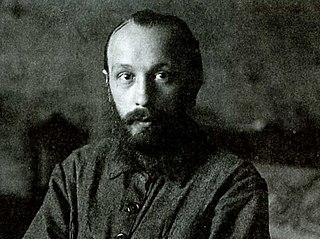A Quote by Mikhail Bakhtin
Words belong to nobody, and in themselves they evaluate nothing. But they can serve any speaker and be used for the most varied and directly contradictory evaluations on the part of the speakers.
Related Quotes
Words are delicate instruments: How to use them so that, after having read the poem, the taste remaining is not of the words themselves, but of a thought, a situation, a parallel reality? If not used appropriately, words in poetry are like the ugly remains of food after eating. What I mean is that readers will reject words if they don't serve to shift attention from themselves to somewhere else.
As usual, it occurred to me that words were the only thing that could possibly save me from this situation. This was a characteristic misunderstanding on my part. When action was needed, I was absorbed in words; for words proceeded with such difficulty from my mouth that I was intent on them and forgot all about action. It seemed to me that actions, which are dazzling, varied things, must always be accompanied by equally dazzling and equally varied words.
I trust microphones, speakers and recordings less and less, and no longer buy into the idea that I can recreate at home, or in my earphones, the experience of hearing live acoustic instruments. The orchestra is already a set of speakers that react differently to each player, each room and each concert - it's that high level of uncertainly and unrepeatability that I like. The music is just soaked into the walls of a room straight from the instruments - and it's a one-off deal. The alternative - left speaker, right speaker - is kind of a compromise.
Wise people are able to give themselves gracefully to seemingly contradictory experiences, because they know that they belong to different seasons of life, all of which are necessary to the whole. Spring and winter, growth and decay, creativity and fallowness, health and sickness, power and impotence, and life and death all belong within the economy of being.
I feel like the older I get, the truer it feels that I'm only going have an investment in a poem if it allows or forces me to bring something that's supremely me onto the page. I used to think that the speaker of a poem was talking to someone else, to some ideal reader or listener, but now I think that speakers - poets - are talking to themselves. The poem allows you to pose questions that you have you ask of yourself knowing that they are unanswerable.
Others - as most legislators, politicians, lawyers, ministers, and office-holders - serve the state chiefly with their heads; and, as they rarely make any moral distinctions, they are as likely to serve the devil, without intending it, as God. A very few - as heroes, patriots, martyrs, reformers in the great sense, and men - serve the state with their consciences also, and so necessarily resist it for the most part.
Speakers find joy in public speaking when they realize that a speech is all about the audience, not the speaker. Most speakers are so caught up in their own concerns and so driven to cover certain points or get a certain message across that they can't be bothered to think in more than a perfunctory way about the audience. And the irony is, of course, that there is no hope of getting your message across if that's all the energy you put into the audience. So let go, and give the moment to the audience.
When it happeneth that a man signifieth unto us two contradictory opinions whereof the one is clearly and directly signified, andthe other either drawn from that by consequence, or not known to be contradictory to it; then (when he is not present to explicate himself better) we are to take the former of his opinions; for that is clearly signified to be his, and directly, whereas the other might proceed from error in the deduction, or ignorance of the repugnancy.
Some help others in order to receive blessings and admiration. This is simply meaningless. Some cultivate themselves in part to serve others, in part to serve their own pride. They will understand, at best, half of the truth. But those who improve themselves for the sake of the world - to these, the whole truth of the universe will be revealed.
There's something nearly mystical about certain words and phrases that float through our lives. It's computer mysticism. Words that are computer generated to be used on products that might be sold anywhere from Japan to Denmark - words devised to be pronounceable in a hundred languages. And when you detach one of these words from the product it was designed to serve, the words acquires a chantlike quality.







































